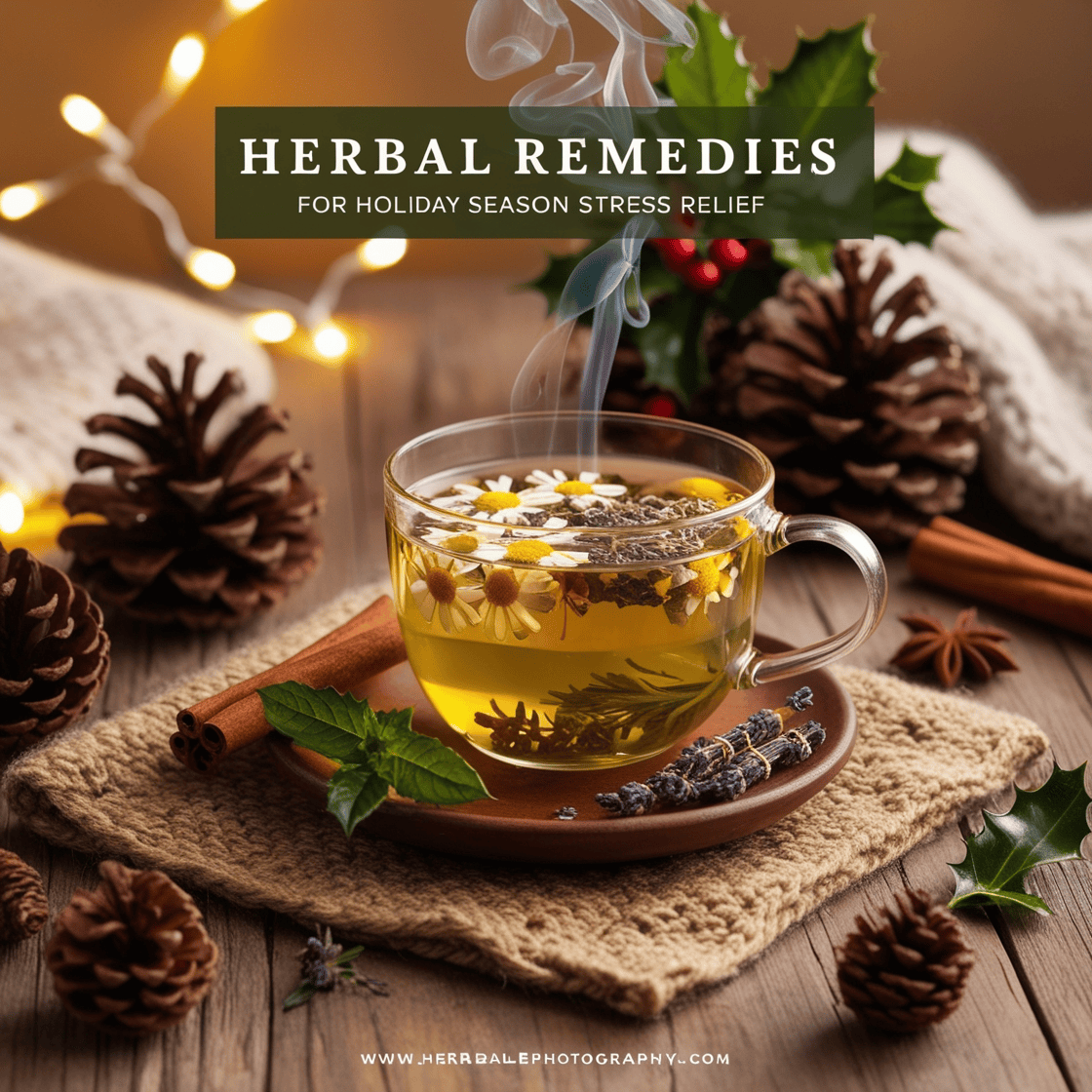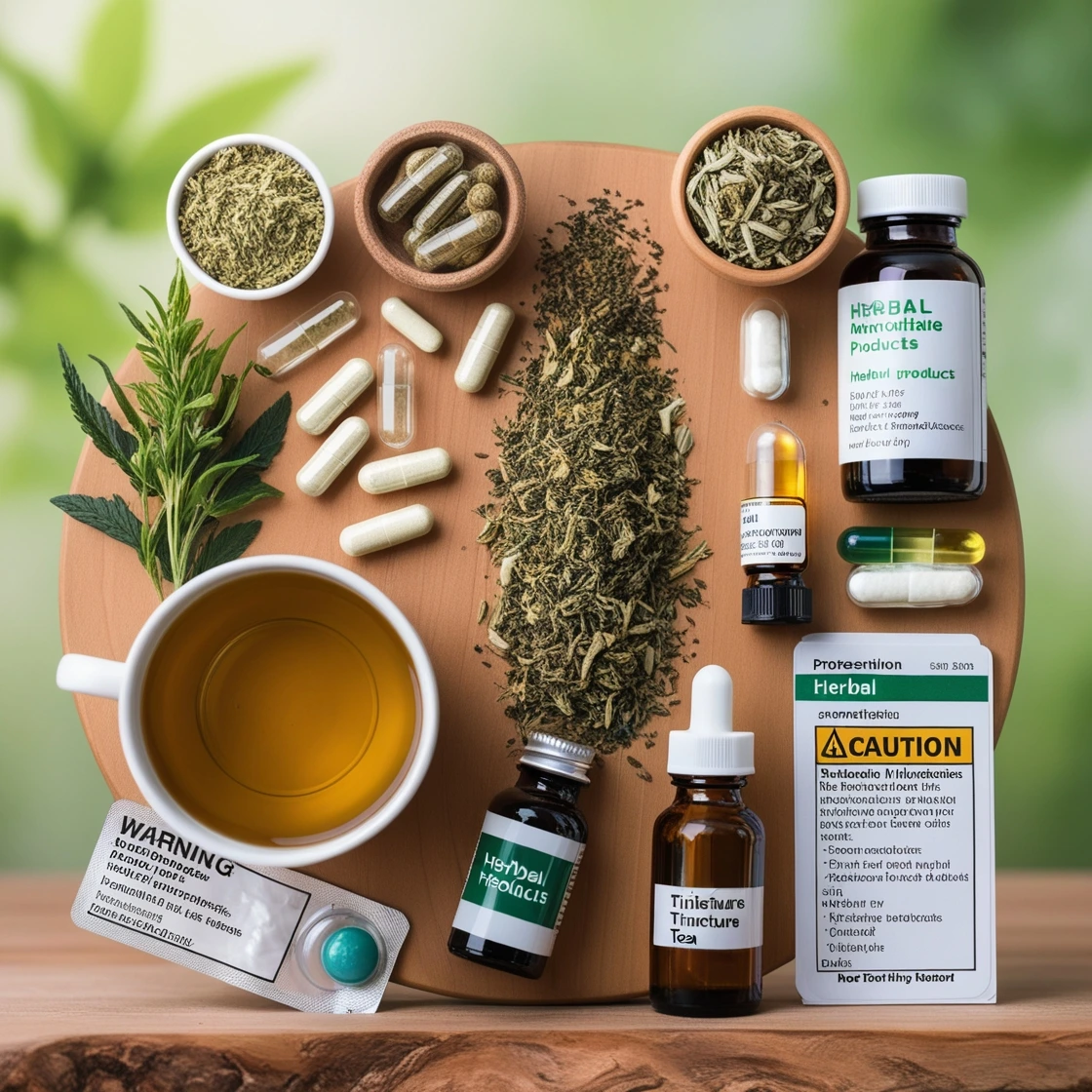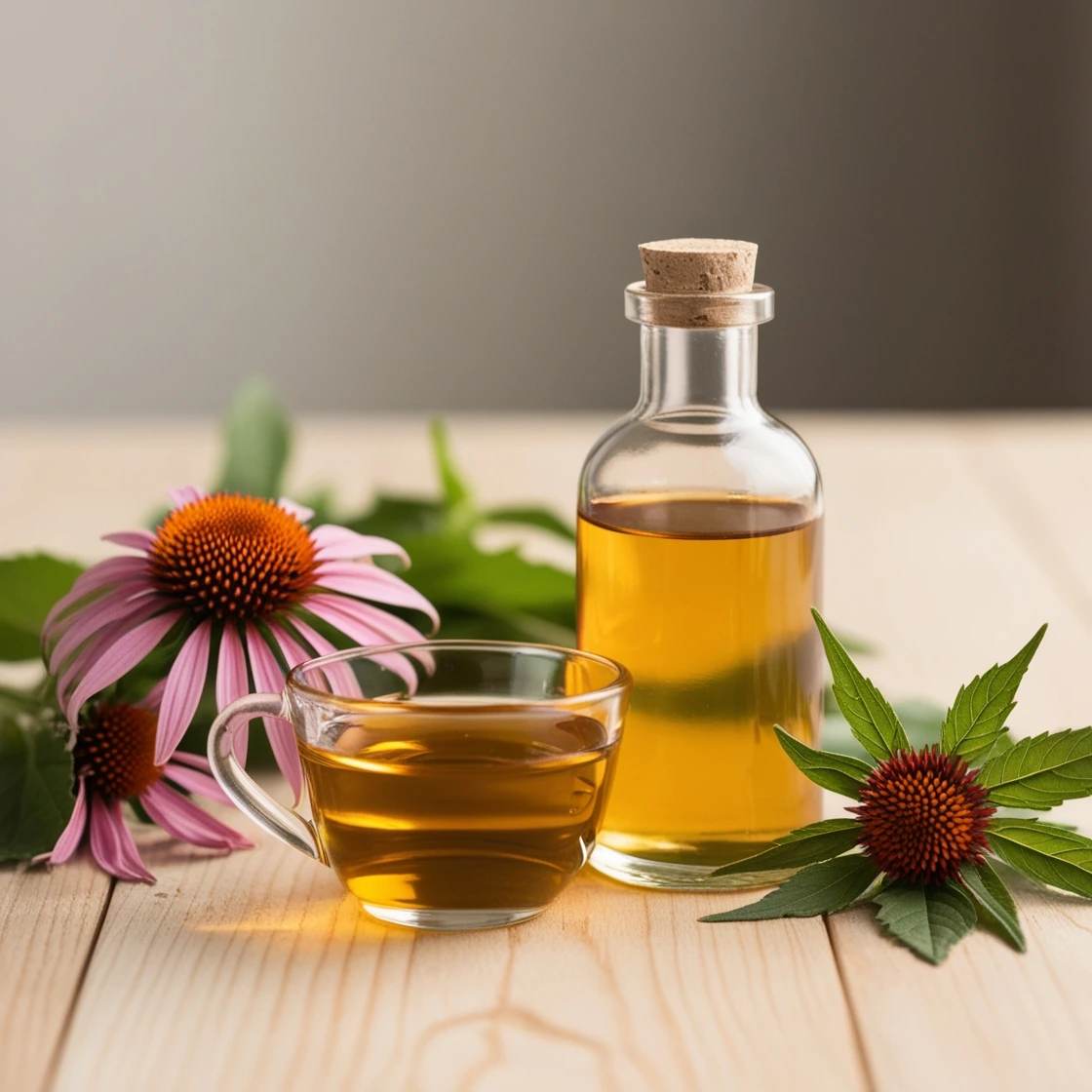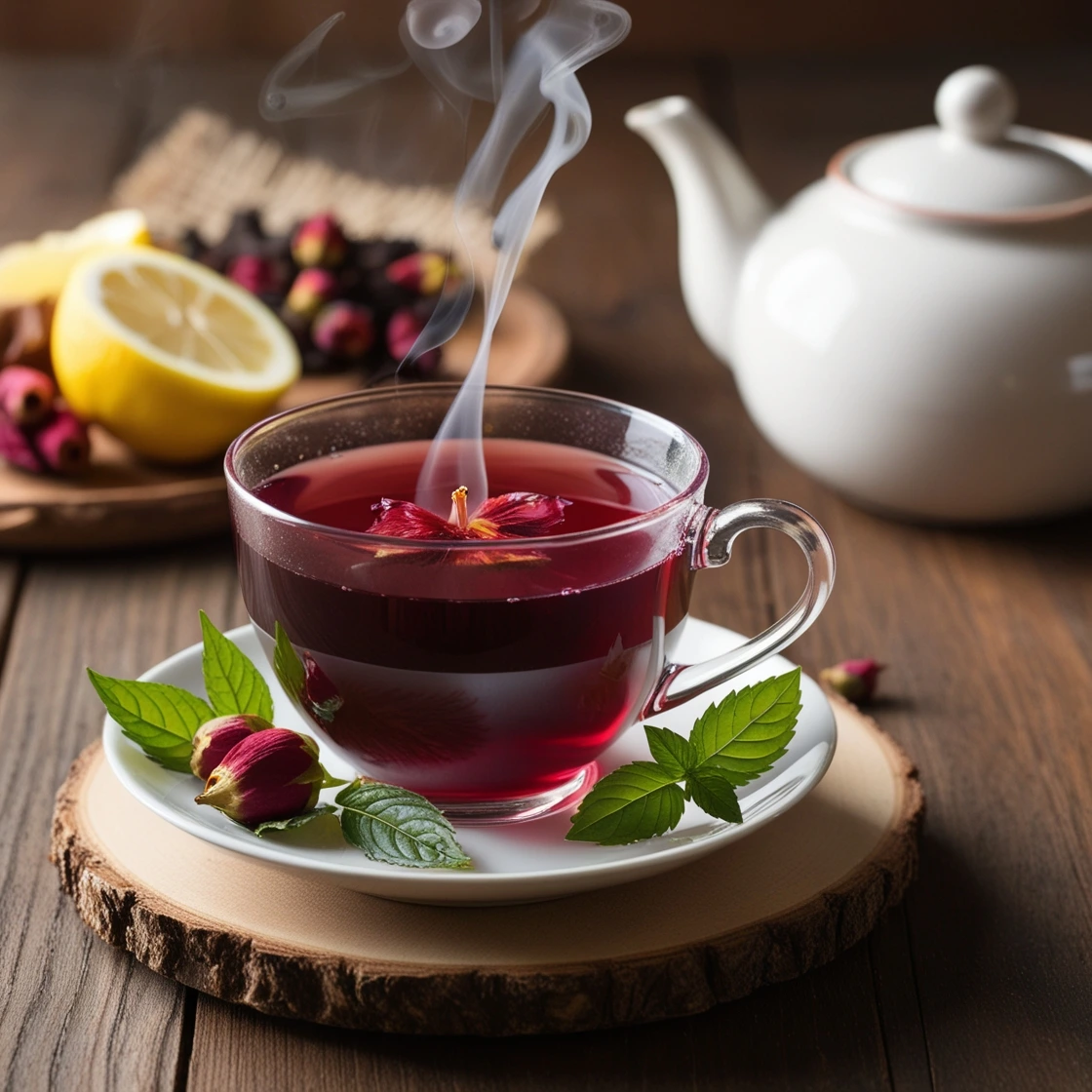Introduction
Looking for herbal products that act as a natural remedy but unsure if they are right for you? Don’t worry? Here we will help you navigate the world of herbal products, exploring who should avoid them and why. Whether you’re new to herbal medicine or just seeking information on the potential risks, we have got you covered.
Just because herbal products are made from natural sources, that does not mean they are always safe. If taken without prior knowledge and expert medical supervision, herbal products may often result into severe adverse side effects.
They can pose significant risks. From dangerous herbal-drug interactions to contamination with heavy metals, many people are unaware of the potential harm these products can cause.
People with chronic health conditions, pregnant women, those on medication, and the elderly are particularly vulnerable to the adverse effects of herbal supplements.
Here you will get science-backed data especially helpful for individuals considering herbal remedies, including those who are pregnant, elderly, or managing chronic illnesses such as diabetes or heart disease. If you are currently taking prescription medications or have allergies, understanding the risks of herbal products is essential to making an informed decision.
We understand how tempting it can be to seek natural solutions for health issues. Herbal products are often seen as a safe and holistic option, but the reality is that they can have serious, even life-threatening consequences for certain individuals. We’re here to help you make informed choices and avoid costly mistakes when integrating herbal products into your wellness routine.
Here you will learn who should avoid herbal products, the potential risks, and how to safely use these remedies. By understanding the dangers and benefits of herbal medicine, you will be able to make better, safer choices for your health and well-being.
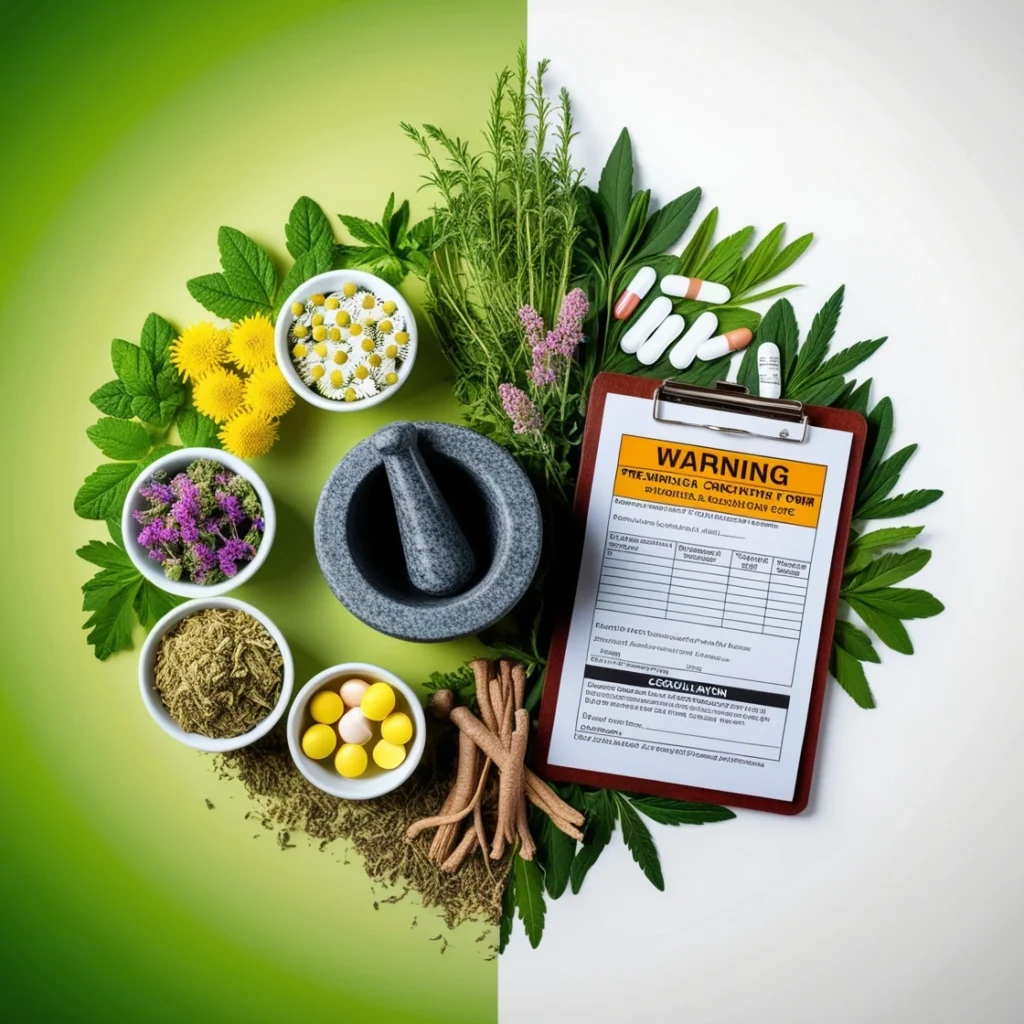
Understanding Herbal Medicine and Its Risks
Herbal medicine is a significant part of Complementary and Alternative Medicine (CAM), used for a wide range of health issues from improving digestion to enhancing mental clarity.
Herbal products are often marketed as “natural” and therefore presumed to be safer than pharmaceuticals. However, this perception can be misleading. Many herbs contain active compounds that, while effective, can cause unintended consequences when combined with other medications or conditions.
Herbal remedies are frequently used for managing long-term conditions like anxiety or chronic pain, but individuals must be aware of potential risks such as contamination, lack of standardization, and lack of clinical trials for certain products.
The National Center for Complementary and Integrative Health (NCCIH) under the National Institutes of Health (NIH) provides a wealth of information on how to safely use herbal products and avoid complications.
The lack of regulation and oversight for many herbal supplements means that consumers cannot always trust the safety, dosage, or potency of what they are taking. Moreover, herbal products can contain contaminants, such as heavy metals or pesticides, which are harmful over time.
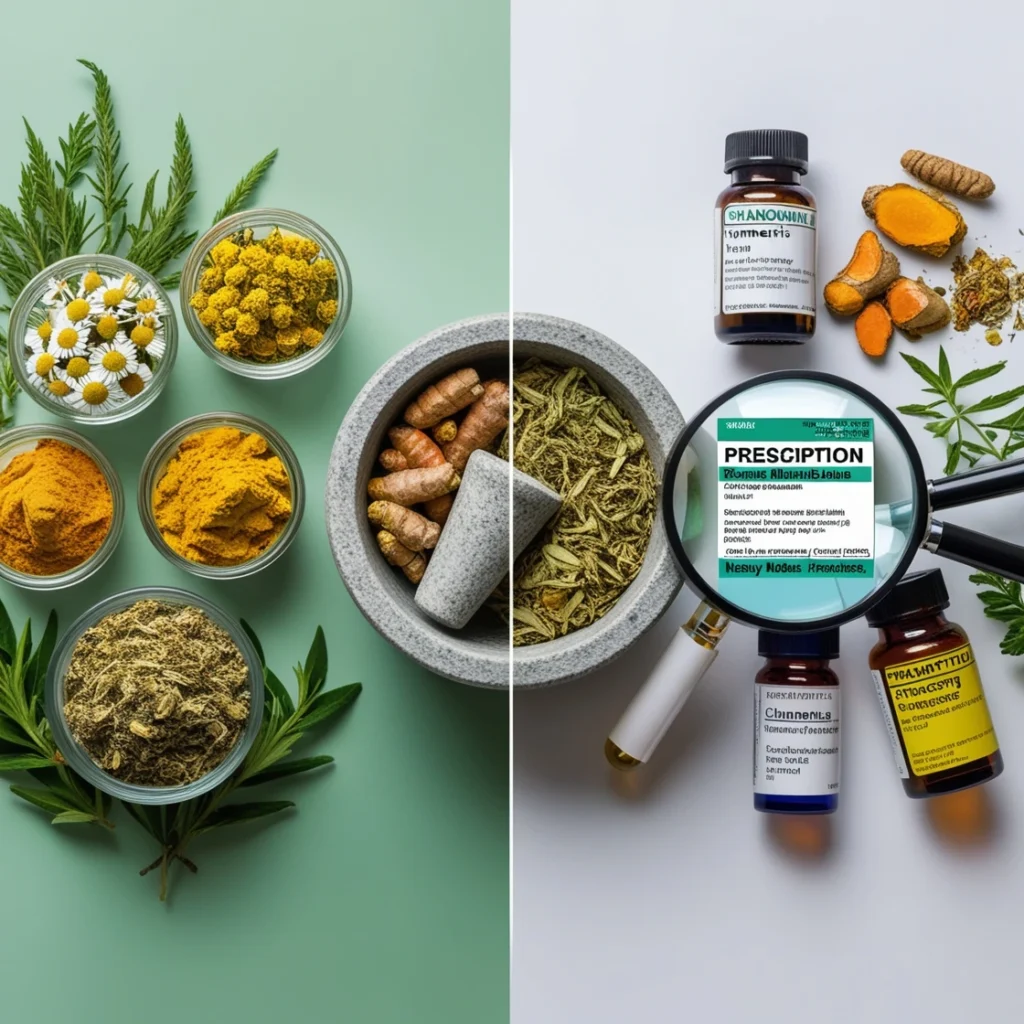
Lack of Standardized Dosing
Herbal supplements are sometimes produced without standardized dosing, making it difficult to determine the proper amount to consume safely. This can lead to cases of under or overdosing, potentially causing adverse effects.
Furthermore, some herbal remedies contain bioactive compounds that can alter liver or kidney function, exacerbating pre-existing conditions. For instance, black cohosh and kava have been implicated in liver toxicity when used in high doses or over long periods.
While herbal products can offer relief for a variety of symptoms, ensuring that consumers are fully aware of potential risks is critical for promoting safe use.
What WHO Says
The World Health Organization (WHO) has highlighted the growing concern about herbal product adulteration and contamination, calling for greater oversight and stricter quality control standards in the herbal supplement industry.
“Plant materials are used throughout developed and developing countries as home remedies, over-the-counter drug products and raw materials for the pharmaceutical industry, and represent a substantial proportion of the global drug market. It is therefore essential to establish internationally recognized guidelines for assessing their quality,” states WHO.
What Are the Dangers of Herbal Products?
Although herbal products are marketed as a safer alternative to synthetic medications, they come with potential dangers. The National Institute of Health (NIH) states that while some herbs have therapeutic properties, their interactions with other medications or medical conditions can pose serious health risks.
“Black cohosh and St. John’s wort supplements may interfere with the effectiveness of fexofenadine (Allegra). Additionally, goldenseal, St. John’s wort, kratom, and cannabidiol (CBD) may interact with many medications, including those available without a prescription,” states the NIH.
1. Potential for Drug Interactions
Many people take herbal products in combination with prescribed medications. Unfortunately, this can lead to dangerous interactions. For instance, St. John’s Wort extract has been shown to interfere with the metabolism of several drugs, including antidepressants, birth control pills, and blood thinners like warfarin. This interaction may reduce the effectiveness of certain medications or cause them to be eliminated from the body too quickly, leading to therapeutic failure.
“Efficacy of hormonal contraceptives may be impaired as reflected by case reports of irregular bleedings and unwanted pregnancies,” states a study.
Other herbs, such as ginseng, can alter the effectiveness of blood pressure medication, potentially increasing the risk of hypertension or other complications.
2. Heavy Metals
Certain herbal products, especially those imported from countries with lower manufacturing standards, can contain heavy metals like lead, mercury, or arsenic. These metals can accumulate in the body over time, leading to toxic effects such as kidney damage and neurological problems.
A report from the FDA found that several herbal supplements on the market were contaminated with toxic levels of heavy metals.
“Use of unapproved ayurvedic drug products containing harmful levels of heavy metals may cause heavy metal poisoning and a range of health problems such as high blood pressure, kidney injury, fatigue, gastrointestinal distress and neurologic symptoms,” says FDA.
Remember, FDA does not consider herbal supplements as medicines . but rather categorises them as “food” so they don’t have to undergo rigorous testing like over the counter medications.
3. Product Quality
Another issue with herbal supplements is the lack of quality control. Unlike prescription drugs, which are subject to stringent regulations, many herbal products are sold with little oversight. This means the ingredients listed on the label may not reflect what’s actually in the bottle.
Research shows that herbal products may be adulterated with non-herbal substances, or they may contain varying concentrations of the active compounds depending on the manufacturer.
“Herbal medicines are important options for the treatment of several illnesses. Although their therapeutic applicability has been demonstrated throughout history, several concerns about their safety and efficacy are raised regularly. Quality control of articles of botanical origin, including plant materials, plant extracts, and herbal medicines, remains a challenge,” states the research paper.
4. Unsafe Herbal Therapies
: Some herbal products are unsafe for general consumption, especially those that contain high-potency ingredients. For example, ephedrine-containing products have been linked to severe cardiovascular issues, including heart attack and stroke. Similarly, kava, a popular herb used for anxiety, has been associated with liver toxicity, leading to the FDA issuing warnings about its use.
“After reviewing the available data and information, toxicology concludes that there is enough toxicological data that demonstrates that indiscriminate use of kava either as a “recreational” or “relaxation” beverage is not safe for human consumption,” says FDA.
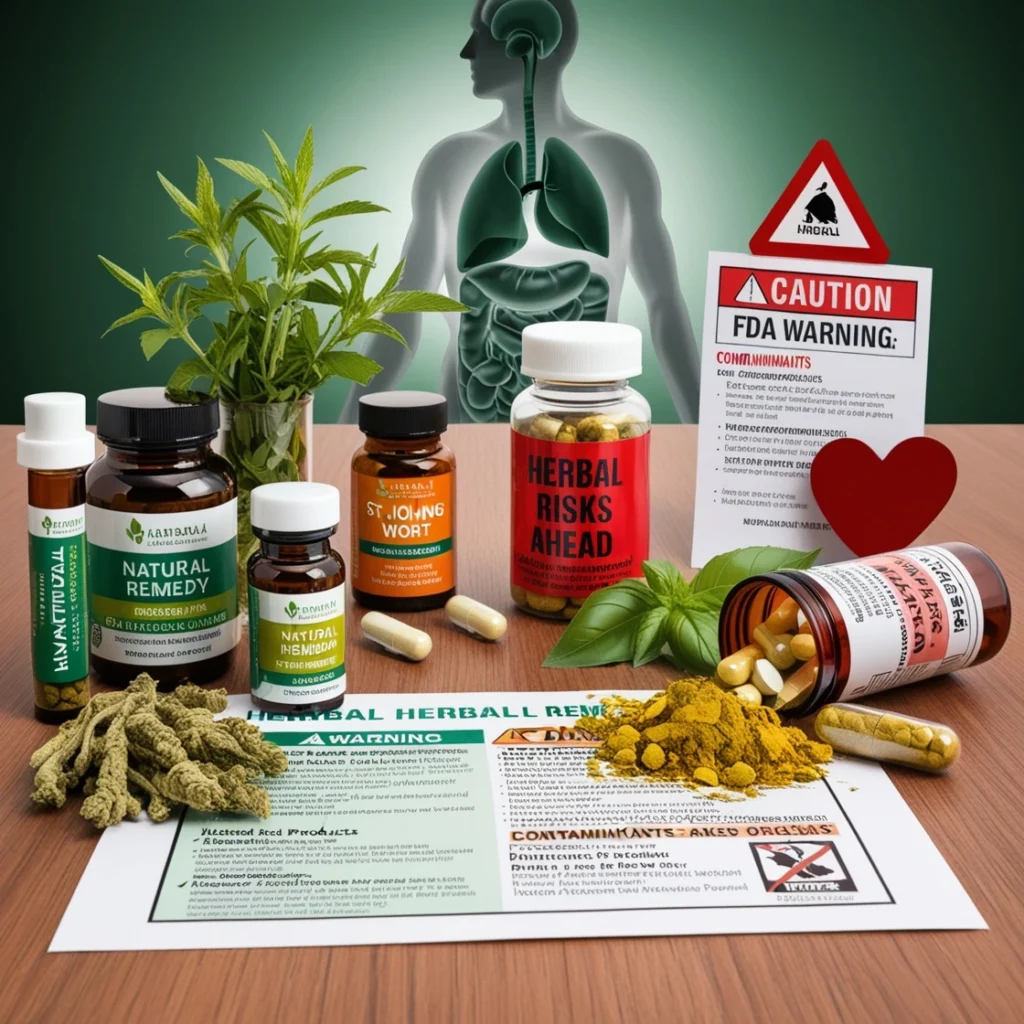
Who Should Avoid Herbal Products?
1. Individuals with Chronic Illnesses
People with chronic illnesses should be particularly cautious when using herbal products. Herbal remedies can interfere with the medications used to treat chronic conditions like diabetes, heart disease, and hypertension.
For example, garlic supplements, often taken for their purported cardiovascular benefits, can act as a blood thinner, potentially enhancing the effects of anticoagulants like warfarin. This could lead to an increased risk of bleeding, particularly in those undergoing surgery or those with bleeding disorders.
“Taking garlic supplements may increase the risk of bleeding. If you take an anticoagulant (blood thinner), such as warfarin (Coumadin), or if you need surgery, tell your health care provider if you’re taking or planning to take garlic supplements,” says the National Centre for Complimentary and Integrative Health.
Another example is ginseng, which can influence glucose metabolism, making it harder for people with diabetes to control their blood sugar levels. Individuals with heart disease should also be cautious of certain herbal products, as they may affect blood pressure or interact with medications such as beta-blockers or ACE inhibitors.
2. Pregnant and Breastfeeding Women
Pregnant and breastfeeding women are highly vulnerable to the effects of herbal products, as certain herbs can affect hormonal levels, cause uterine contractions, or pass into breast milk.
For example, black cohosh is commonly used to manage menopause symptoms. But it can stimulate uterine contractions, posing a risk of premature labor during pregnancy. Other herbs, such as ginger and chamomile, while generally considered safe in small amounts, can cause adverse effects when taken in large doses during pregnancy.
3. Individuals on Prescription Medications
Individuals taking prescription medications should always check with their healthcare provider before using herbal products. Valerian root, a herb commonly used for insomnia and anxiety, has sedative properties that may interact with nervous system depressants like benzodiazepines or opioids, increasing the risk of excessive sedation.
Similarly, curcumin, the active compound in turmeric, can alter the metabolism of several medications, including those used for cancer treatment.
4. Those with Allergies
People with allergies should be especially cautious about herbal products, as many can cause allergic reactions. Common allergens in herbal products include pollen, nuts, and latex, which may trigger symptoms ranging from mild rashes to severe anaphylaxis in sensitive individuals.
Additionally, certain herbs, like echinacea, can worsen allergic rhinitis or asthma in some people. “The possibility that cross-reactivity between echinacea and other environmental allergens may trigger allergic reactions in “echinacea-naïve” subjects is supported by the Australian data,” states a study.
5. Elderly Patients
The elderly population faces a higher risk of adverse effects from herbal products due to changes in metabolism and the presence of multiple chronic conditions that require medications.
According to research elderly patients are at greater risk for drug interactions and adverse reactions from herbal supplements. The aging body processes drugs more slowly, and this can lead to increased drug levels in the system, causing harmful effects.
“OA (Older Adults) are an especially vulnerable population, since many of the human body’s physiological activities, such as renal and hepatic detoxification and clearance usually decrease with age,” states the study.
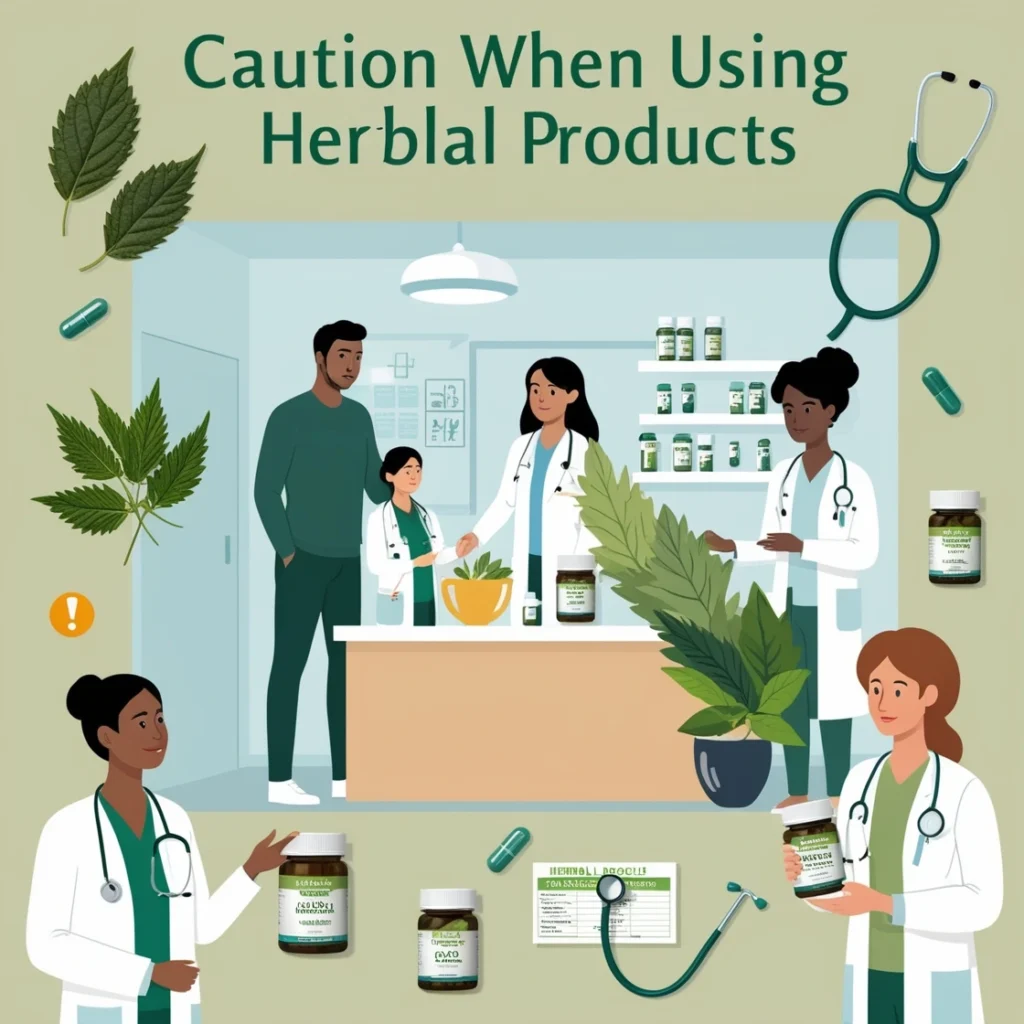
What Herbs Should Not Be Taken Together?
Certain combinations of herbal products can result in amplified side effects or reduce the efficacy of medications. For example, combining kava extract with St. John’s Wort may worsen depression symptoms, as both herbs affect neurotransmitters in the brain.
Similarly, ginseng can interact with warfarin, a blood thinner, increasing the risk of bleeding. The National Center for Complementary and Integrative Health recommends avoiding mixing herbs without consulting a healthcare provider first.
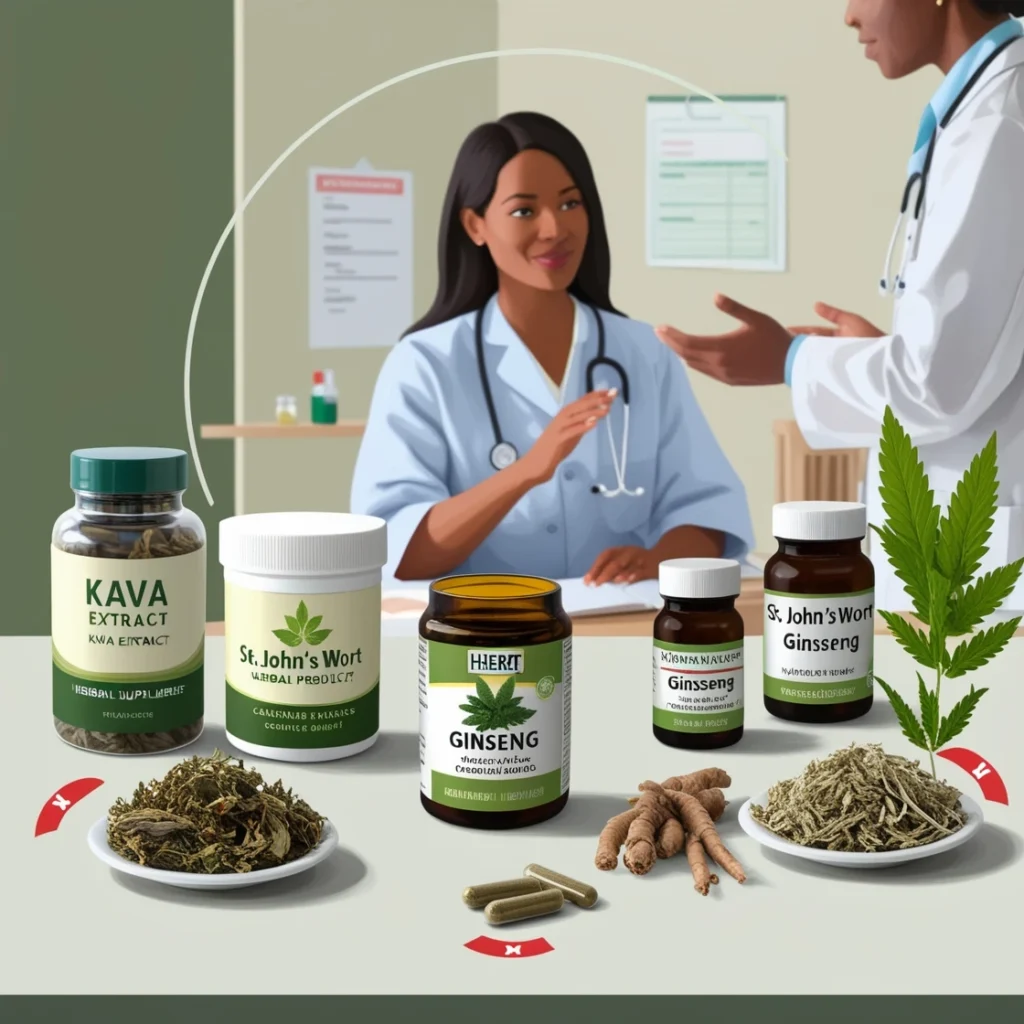
Clinical Assessment and Potential Side Effects
It is important to have regular clinical assessments when taking herbal products, especially if you have pre-existing health conditions or are taking prescribed medications. A healthcare professional can help you navigate potential side effects and determine if specific herbal supplements are safe for long-term use. The FDA encourages transparency in herbal product labeling, which is vital for individuals managing multiple treatments and therapies.
While herbal products can provide substantial health benefits, they are not without risks. Understanding these risks and seeking professional advice can help ensure that you are using them safely and effectively.
Risky Herbal Supplements: Understanding Potential Dangers
Some popular herbal supplements, despite being “natural,” can pose significant risks, including liver damage and severe drug interactions. Key herbs to be cautious of include St. John’s Wort, Kava, Comfrey, Chaparral, and Pennyroyal. Always consult a healthcare provider before using any supplement, and ensure product quality by looking for trusted seals like USP, NSF, or CL. Here is the list:
- St. John’s Wort:
- Used to ease mild to moderate depression.
- Known for potential drug interactions, making other medications less effective.
- Can cause issues with birth control pills and organ transplant drugs.
- Essential to consult with healthcare providers before use.
- Kava:
- Reduces anxiety and has effects similar to prescription anti-anxiety medications.
- Linked to severe liver damage, liver transplants, and even death, even with short-term use.
- Can cause nerve damage and skin changes.
- Should not be combined with alcohol or sedatives, and is unsafe for those with liver disease.
Comfrey:
- Has medicinal uses for treating wounds and injuries.
- Can cause severe liver and potentially lung damage when ingested.
- FDA has recommended removing comfrey products from the market, but it’s still available in some areas.
- Should only be used topically for external wounds.
Chaparral:
- Promoted for reducing pain, inflammation, and skin irritation, with claims of anti-cancer properties.
- Known for causing irreversible liver damage.
- Associated with severe drug interactions, particularly with blood thinners, anti-inflammatory drugs, and diabetes medications.
Pennyroyal:
- Historically used for causing abortion but can be lethal at high doses.
- Considered unsafe in any form, especially the oil.
- Associated with liver and kidney toxicity.
Safety Tips:
- Always do thorough research before using any herbal product.
- Consult with healthcare providers to ensure safety and efficacy.
- Check for quality seals like USP, NSF, and CL on supplements to ensure safety and avoid contaminants.
- Test tablets for proper dissolution in the body.
What The NHS Says on Who Should Avoid Herbal Products
- Herbal Medicines Overview
- Herbal medicines are derived from plants and are used to treat or prevent various health conditions.
- Common forms include teas, tablets, and capsules.
- Effectiveness and Safety Concerns
- While popular, herbal remedies can have side effects, and their safety or efficacy is not always guaranteed.
- Herbal products can interact with prescription medications, potentially altering their effects.
- Herbal-Drug Interactions
- Example: St. John’s Wort can interfere with antidepressants, birth control pills, and other medications.
- It’s important to consult a healthcare provider before using herbal remedies, especially if you are pregnant, breastfeeding, or taking prescription medications.
- Lack of Regulation
- Unlike conventional medicines, herbal products are not strictly regulated.
- The quality and concentration of active ingredients can vary between products.
- Risks and Precautions
- Herbal products should be purchased from trusted sources to minimize the risk of contamination or mislabeling.
- Professional guidance is essential to ensure safe and effective use of herbal medicines.
Conclusion
While herbal products offer numerous health benefits and are often seen as natural alternatives to conventional medicine, they are not without risks. Individuals considering these products should be aware of potential drug interactions, heavy metals, and the quality issues associated with many herbal supplements.
Certain populations, who should avoid herbal productsincluding those with chronic illnesses, pregnant or breastfeeding women, those on prescription medications, individuals with allergies, and the elderly, may be more susceptible to adverse effects from these products.
It is essential to be proactive in consulting a healthcare provider before starting any herbal regimen, especially if you are taking prescription medications or have underlying health conditions. Your healthcare provider can help assess any potential interactions, recommend safe herbal products, and guide you on appropriate doses.
Additionally, always choose herbal products that are transparent about their contents, preferably from trusted, well-regulated sources.
By taking these precautions, you can ensure that you are using herbal medicine safely and effectively as part of a balanced health regimen. Staying informed, regularly assessing your health status, and collaborating with your healthcare provider will help you make the best choices when incorporating herbal remedies into your lifestyle.
FAQ : Who Should Avoid Herbal Products
1. What are the risks of using herbal products?
While herbal products offer potential health benefits, they carry risks such as drug interactions, contamination with heavy metals, and inconsistent product quality. Some herbs may interfere with prescribed medications or exacerbate existing health conditions, leading to serious side effects.
2. Who should avoid herbal supplements?
Individuals with chronic conditions like diabetes, hypertension, or heart disease should be cautious when using herbal products, as certain herbs can interfere with their medications. Pregnant or breastfeeding women, individuals with allergies, and the elderly may also be at higher risk due to physiological factors and existing medication use.
3. Can herbal products interact with prescription medications?
Yes, many herbs can interact with prescription medications, either reducing their effectiveness or increasing side effects. For example, St. John’s Wort can affect antidepressants, and garlic supplements may interact with anticoagulants like warfarin. Always consult a healthcare provider before combining herbs with medications.
4. Are all herbal products safe to use?
No, not all herbal products are safe. The quality and purity of herbal products can vary widely, and some may contain harmful contaminants. It’s essential to purchase herbal supplements from reputable sources that test for quality and safety. Always check labels for transparency and certification from regulatory bodies like the FDA.
5. How can I ensure the safe use of herbal medicine?
To use herbal medicine safely, consult a healthcare provider before starting any new product, especially if you have a health condition or take prescription medications. Opt for herbal products that are well-regulated and transparent about their ingredients. Regular clinical assessments are also advised.
Key Takeaways: Who Should Avoid Herbal Products
- Herbal products offer numerous health benefits but are not risk-free. They may cause adverse reactions, especially when combined with prescription medications or taken by individuals with certain health conditions.
- Certain groups, such as those with chronic conditions, pregnant women, the elderly, and people on prescription medications, should avoid or use caution when considering herbal products due to the higher risk of negative side effects or interactions.
- Drug interactions are a significant risk when using herbal supplements. Herbs like St. John’s Wort and ginseng can interfere with medications like antidepressants and anticoagulants. Always check with a healthcare provider before starting a new supplement.
- The quality and purity of herbal products can vary. Contaminants like heavy metals and improper processing can make herbal products unsafe. It’s crucial to buy from trusted sources that provide transparent labeling and third-party testing.
- Regular clinical assessments and consultations with a healthcare provider are essential for ensuring that herbal products are safe, especially for long-term use or when combining them with other treatments.
- Before incorporating herbal medicine into your wellness routine, it’s essential to understand the potential risks and benefits. By doing your research and seeking professional advice, you can make informed decisions about the use of herbal products for your health.

